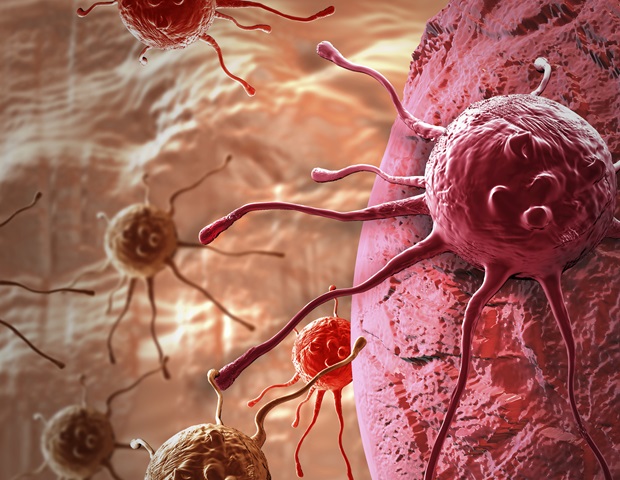Melbourne researchers have improved our understanding of how the immune system is regulated to stop illness, figuring out a beforehand unknown function of ‘pure killer’ (NK) immune cells.
The Monash College-led research recognized a brand new group of immune cells, often called tissue-resident reminiscence pure killer (NKRM) cells. NKRM cells restricted immune responses in tissues and prevented autoimmunity, which is when the immune system makes a mistake and assaults the physique’s personal tissues or organs.
Whereas extra analysis is required, the invention could in the end be used to deal with autoimmune ailments like Sjogren’s Syndrome and probably power inflammatory circumstances.
Revealed in Immunity, the preclinical analysis is led by senior writer Professor Mariapia Degli-Esposti and first writer Dr Iona Schuster from the Monash Biomedicine Discovery Institute (BDI), in shut ongoing collaboration with the Lions Eye Institute.
Initially, NK cells had been considered brief lived cells that flow into within the blood with the only real operate of figuring out and rapidly killing virally contaminated or broken cells.
The staff’s earlier analysis established that NK cells’ function is much extra advanced, and the newest research demonstrates for the primary time {that a} subset of NK cells, NKRM, are crucial in regulating immune responses in tissues.
“That is key to preserving tissue operate and stopping autoimmunity from creating,” Dr Schuster mentioned. “Whereas long-lived tissue resident reminiscence T cells (TRM) have been described, the first recognized operate of those cells is to guard the host towards reinfection.
“Our discovery of tissue-resident reminiscence pure killer (NKRM) cells establishes that the operate of some reminiscence cells that dwell in tissues is to guard from extreme irritation relatively than shield towards recurring an infection.”
Professor Degli-Esposti, BDI Head of Experimental and Viral Immunology, mentioned the findings considerably improved our elementary understanding of how the immune system is regulated to stop illness.
“One of many foremost obstacles in most cancers immunotherapy … is the event of immune associated hostile occasions, which embody the event or flare-up of autoimmune issues,” she mentioned.
“These occasions are as a consequence of ‘tremendous’ or ‘uncontrolled’ activation of the immune system on account of the brakes being eliminated by the therapeutic technique.
“Moreover, many therapies trigger collateral injury to tissues the place tumors are localised. Thus, NKRM could also be an adjunct or follow-up remedy to revive immune stability and produce again tissue well being.”
Learn the total paper in Immunity: An infection induces tissue resident reminiscence NK cells that safeguard tissue well being. https://www.cell.com/immunity/fulltext/S1074-7613(23)00026-2
Key Findings
1. Following an infection with a typical virus, cytomegalovirus, ‘pure killer’ (NK) cells had been recruited from the circulation into infected tissues the place they had been retained and developed right into a long-lived inhabitants of cells that researchers known as tissue-resident reminiscence pure killer (NKRM) cells.
2. In contrast to NK cells, NKRM didn’t take part in virus management.
3. Within the absence of NKRM, an infection led to tissue injury and the event of autoimmunity which offered as Sjogren’s Syndrome, one of the crucial widespread autoimmune ailments.
Due to this fact, researchers recognized a brand new inhabitants of cells that particularly localize to tissues to modulate immune responses to stop immune pathology and autoimmunity.
sources:
Journal reference:
10.1016/j.immuni.2023.01.016

